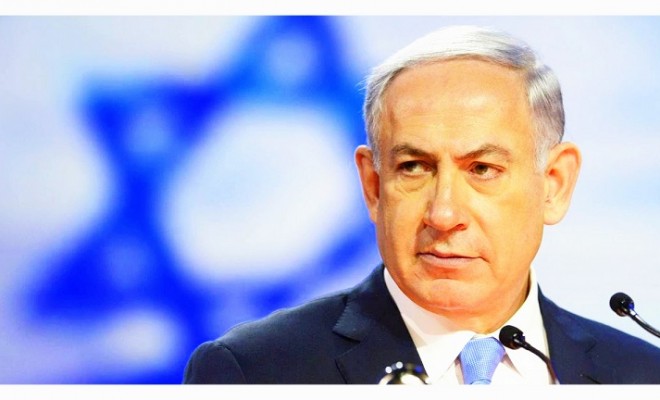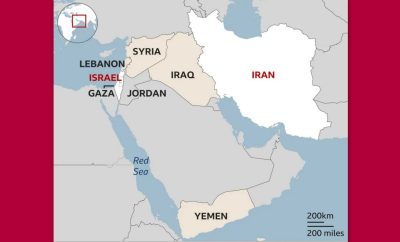
Benjamin Netanyahu: A Plan for Peace
Is America about to adopt the Israeli prime minister’s 20-year-old plan for a durable settlement between Israel and the Palestinians?
Of late, a new “villain” was introduced into political discussions about the future of the Middle East. There are those who said that the responsibility for a thousand years of Middle Eastern obstinacy, radicalism, and fundamentalism has now been compressed into one person—namely, me. My critics contended that if only I had been less “obstructionist” in my policies, the convoluted and tortured conflicts of the Middle East would immediately and permanently have settled themselves.
While it is flattering for any person to be told that he wields so much power and influence, I am afraid that I must forgo the compliment. This is not false modesty. The problem of achieving a durable peace between Israel and its Arab neighbors is complicated enough. Yet it pales in comparison with the problem of achieving an overall peace in the region. Even after the attainment of peace treaties between Israel and its neighbors, any broader peace in the region will remain threatened by the destabilizing effects of Islamic fundamentalism and Iran and Iraq’s fervent ambition to arm themselves with ballistic missiles and atomic weapons. Let me first say categorically: It is possible for Israel to achieve peace with its Arab neighbors. But if this peace is to endure, it must be built on foundations of security, justice, and above all, truth. Truth has been the first casualty of the Arab campaign against Israel, and a peace built upon half-truths and distortions is one that will eventually be eroded and whittled away by the harsh political winds that blow in the Middle East. A real peace must take into account the true nature of this region, with its endemic antipathies, and offer realistic remedies to the fundamental problem between the Arab world and the Jewish state.
Fundamentally, the problem is not a matter of shifting this or that border by so many kilometers, but reaffirming the fact and right of Israel’s existence. The territorial issue is the linchpin of the negotiations that Israel must conduct with the Palestinian Authority, Syria, and Lebanon. Yet a territorial peace is hampered by the continuing concern that once territories are handed over to the Arab side, they will be used for future assaults to destroy the Jewish state. Many in the Arab world have still not had an irreversible change of heart when it comes to Israel’s existence, and if Israel becomes sufficiently weak the conditioned reflex of seeking our destruction would resurface. Ironically, the ceding of strategic territory to the Arabs might trigger this destructive process by convincing the Arab world that Israel has become vulnerable enough to attack.
That Israel’s existence was a bigger issue than the location of its borders was brought home to me in the first peace negotiations that I attended as a delegate to the Madrid Peace Conference in October 1991. In Madrid, the head of the Palestinian delegation delivered a flowery speech calling for the cession of major Israeli population centers to a new Palestinian state and the swamping of the rest of Israel with Arab refugees, while the Syrian foreign minister questioned whether the Jews, not being a nation, had a right to a state of their own in the first place. (And this at a peace conference!) Grievances over disputed lands and disputed waters, on which the conference sponsors hoped the participants would eventually focus their attention, receded into insignificance in the face of such a primal hostility toward Israel’s existence. This part of the conference served to underscore the words of Syria’s defense minister, Mustafa Tlas, who with customary bluntness had summed up the issue one year earlier: “The conflict between the Arab nation and Zionism is over existence, not borders.”
This remains the essential problem nearly a decade later. The fact that the Syrians place such immense obstacles before the resumption of peace talks with us, and the fact that the Palestinians resisted for more than a year my call to enter fast-track negotiations for a final settlement, underscores their reluctance to make a genuine and lasting peace with us. To receive territory is not to make peace. Peace requires that you also give something in return, namely arrangements not to use the land that is handed over to you as a future staging area for attacks against Israel. Equally, peace requires that our Arab partners educate their people to an era of mutual acceptance, something we have failed to see in many parts of the Arab world.
Συνέχεια ανάγνωσης εδώ: www.tabletmag.com




